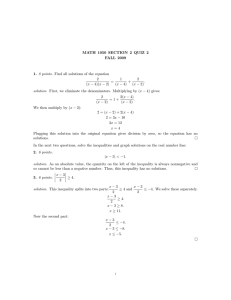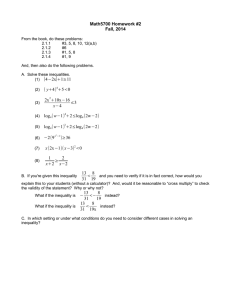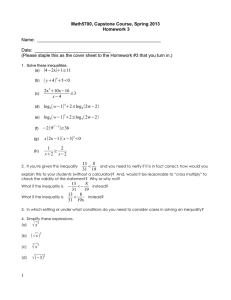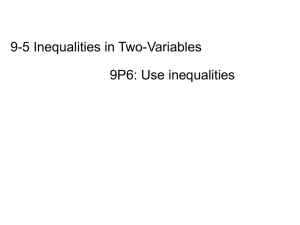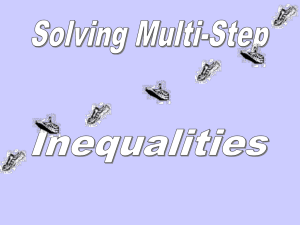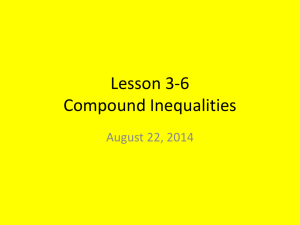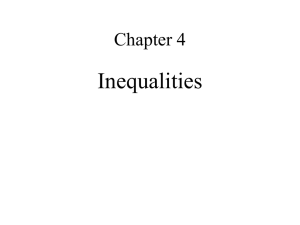Guiding Questions 18 June: Macroeconomic dimensions of inequality
advertisement
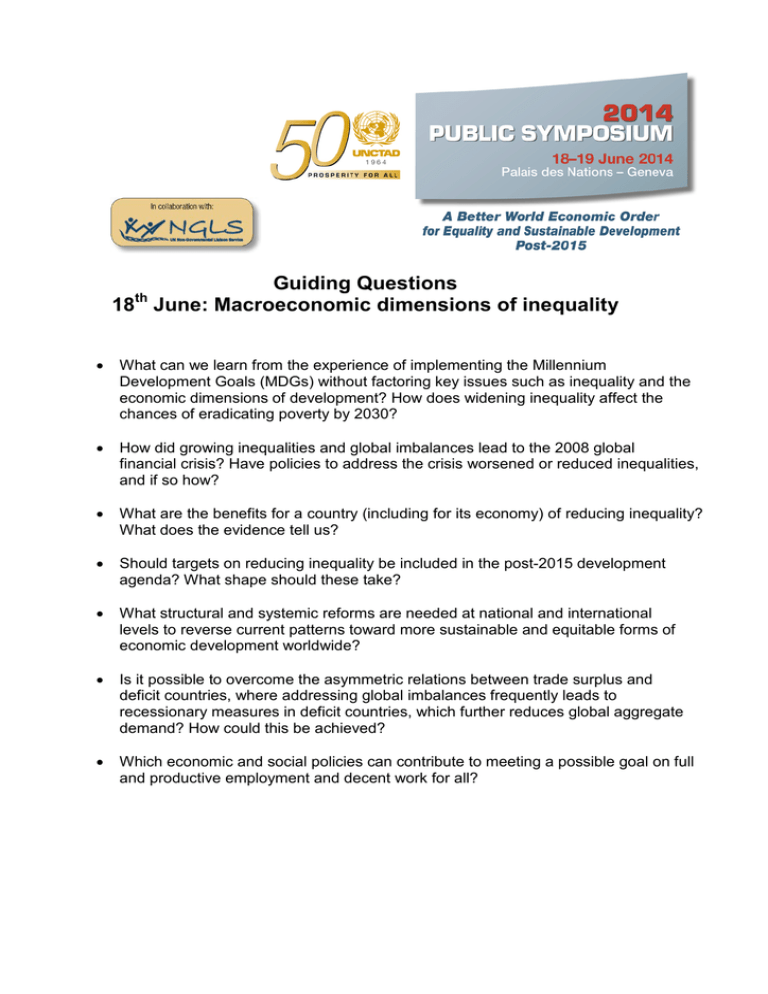
Guiding Questions 18 June: Macroeconomic dimensions of inequality th • What can we learn from the experience of implementing the Millennium Development Goals (MDGs) without factoring key issues such as inequality and the economic dimensions of development? How does widening inequality affect the chances of eradicating poverty by 2030? • How did growing inequalities and global imbalances lead to the 2008 global financial crisis? Have policies to address the crisis worsened or reduced inequalities, and if so how? • What are the benefits for a country (including for its economy) of reducing inequality? What does the evidence tell us? • Should targets on reducing inequality be included in the post-2015 development agenda? What shape should these take? • What structural and systemic reforms are needed at national and international levels to reverse current patterns toward more sustainable and equitable forms of economic development worldwide? • Is it possible to overcome the asymmetric relations between trade surplus and deficit countries, where addressing global imbalances frequently leads to recessionary measures in deficit countries, which further reduces global aggregate demand? How could this be achieved? • Which economic and social policies can contribute to meeting a possible goal on full and productive employment and decent work for all?
